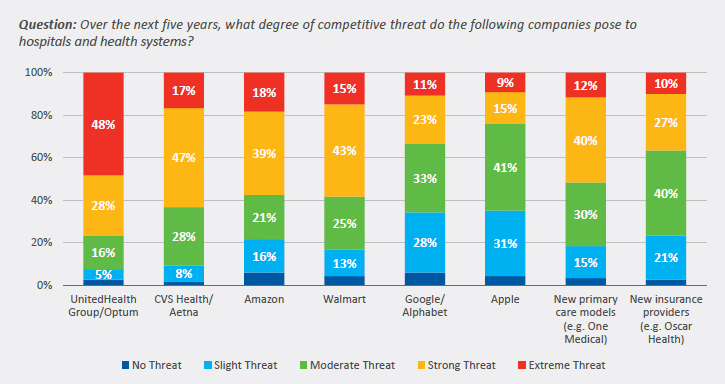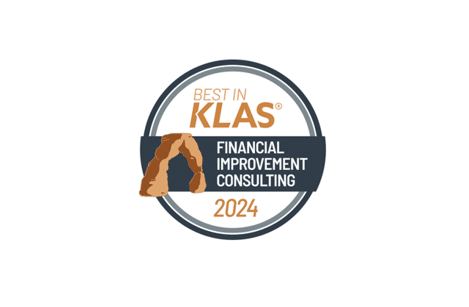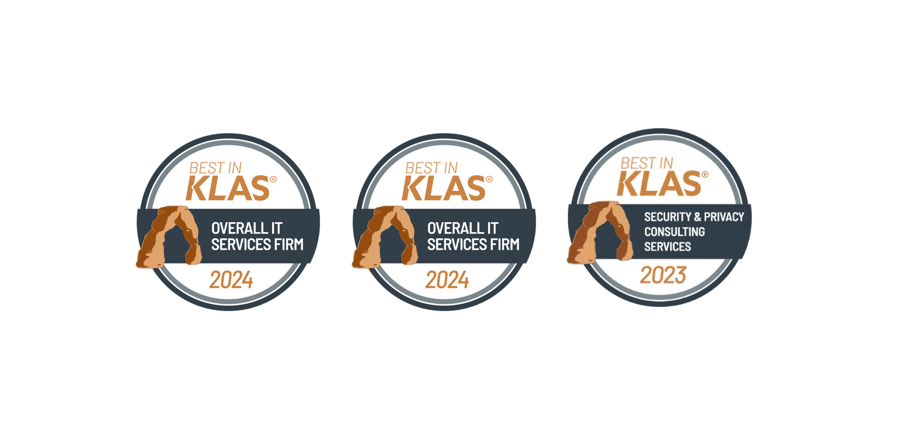The Threat and Opportunity of Disruption Attempts

Provider organizations continue to be concerned about the threat posed by a variety of different non-traditional competitors, according to a survey from Kaufman Hall. Per the authors: “Healthcare leaders continue to acknowledge the risk of tech giants, well-resourced healthcare companies including UnitedHealth Group/Optum and CVS/Aetna, and new, innovative providers seeking to disrupt traditional care delivery models. Seventy-six percent of respondents cited UnitedHealth Group/Optum as a strong or extreme threat, up from 67% in the 2019 Kaufman Hall State of Consumerism Survey.”

Image source: “State of Consumerism in Healthcare 2021: Regaining Momentum,” Kaufman Hall, September 2021
Why It Matters:
There continues to be no shortage of attempts to disrupt traditional models and approaches in health delivery, whether from payers, tech giants, national pharmacy and retail chains, large employers, or even providers themselves. More than ever, it is critical for hospitals and health systems to get innovation “right.” This means finding new ways to leverage the health system’s brand, exploring alternative models of care such as the “hospital at home” – and of course, building on existing differentiators such as depth of services, clinical expertise, and the patient-provider relationship. Innovation is not just about responding to perceived threats from new entrants and non-traditional competitors in health delivery though. It is also about capitalizing on any opportunities that emerge to form strategic partnerships with those stakeholders. The dynamics in each market or region will obviously be inherently different, but as the competitive landscape continues to evolve, the health systems who are able to foster a culture of innovation internally and actively participate in disruption will be far better positioned for success than those who do not.
This article was originally published in Impact Advisors’ digital newsletter: The Impact Advisor 4Q2021.
























